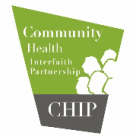What is the first step?
We were asked a question. A young person whose behavior attracted attention and unsettled the congregation had begun showing up at church. The congregational leaders had not had Mental Health First Aid Training; the situation was immediate. Sadly, the first reaction of many was to steer clear. What do you do if you encounter a person who is clearly seriously troubled, disoriented, in crisis, or irrational?
Two things to remember:
It is a good sign that this person is seeking human interaction.
What an opportunity for a house of faith to demonstrate the compassionate that we are called to!
First, connect. If your congregational leader is not comfortable talking with this young person someone who is should begin talking with the stranger. You might ask, “ I’ve noticed that you seem to be troubled, do you want to talk?” Also, ask the person if there’s someone they may be more comfortable talking with if they’re not responding to you. If so, try to bring that person into the dialogue.
Ask open questions and listen nonjudgementally in a comfortable place. The interaction should be reassuring for the troubled person.
As you express interest and concern and listen you are assessing for the possibility of this person doing harm to himself or others.
Give your guest the information that help is available now and the reassurance that there is no shame in seeking help.
If help is needed encourage or help your guest to call the Georgia Crisis and Access Line 1-800-715-4225. This line is answered 24 hours a day, seven days a week. It does not have to be an acute emergency. A trained person can talk with your guest about what kind of help they might need and where to get it- even discussing things like insurance and helping that person get the right help – right away. They can make an appointment at the time of the call.
The Compassionate congregations Tool Box for Mental Health Ministry has a list of signs and symptoms that someone needs help soon. Here. And a list of centers and counseling services is Here.
Mental Health First Aid uses this framework as a guide:
· Action A: Assess for risk of suicide or harm
· Action L: Listen non-judgmentally
· Action G: Give reassurance and information
· Action E: Encourage appropriate professional help
· Action E: Encourage self-help and other support strategies
We were asked a question. A young person whose behavior attracted attention and unsettled the congregation had begun showing up at church. The congregational leaders had not had Mental Health First Aid Training; the situation was immediate. Sadly, the first reaction of many was to steer clear. What do you do if you encounter a person who is clearly seriously troubled, disoriented, in crisis, or irrational?
Two things to remember:
It is a good sign that this person is seeking human interaction.
What an opportunity for a house of faith to demonstrate the compassionate that we are called to!
First, connect. If your congregational leader is not comfortable talking with this young person someone who is should begin talking with the stranger. You might ask, “ I’ve noticed that you seem to be troubled, do you want to talk?” Also, ask the person if there’s someone they may be more comfortable talking with if they’re not responding to you. If so, try to bring that person into the dialogue.
Ask open questions and listen nonjudgementally in a comfortable place. The interaction should be reassuring for the troubled person.
As you express interest and concern and listen you are assessing for the possibility of this person doing harm to himself or others.
Give your guest the information that help is available now and the reassurance that there is no shame in seeking help.
If help is needed encourage or help your guest to call the Georgia Crisis and Access Line 1-800-715-4225. This line is answered 24 hours a day, seven days a week. It does not have to be an acute emergency. A trained person can talk with your guest about what kind of help they might need and where to get it- even discussing things like insurance and helping that person get the right help – right away. They can make an appointment at the time of the call.
The Compassionate congregations Tool Box for Mental Health Ministry has a list of signs and symptoms that someone needs help soon. Here. And a list of centers and counseling services is Here.
Mental Health First Aid uses this framework as a guide:
· Action A: Assess for risk of suicide or harm
· Action L: Listen non-judgmentally
· Action G: Give reassurance and information
· Action E: Encourage appropriate professional help
· Action E: Encourage self-help and other support strategies

